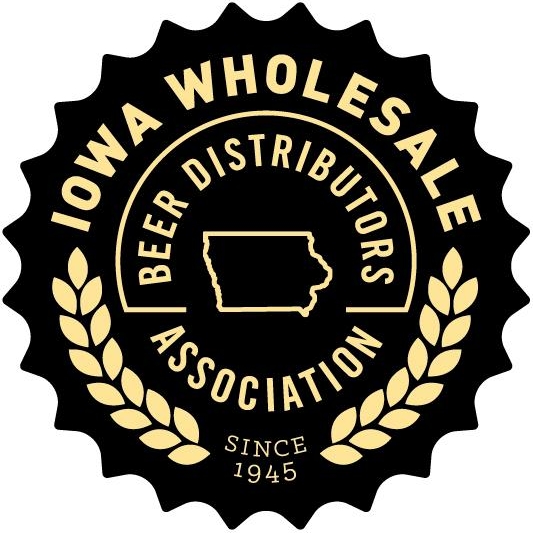Why is the alcohol industry regulated using a three-tier system?
Failed alcohol regulation in the early 20th Century led to a federal Prohibition solution – a solution Americans soon found was worse than the problem it was designed to fix. Prohibition failed, but led to the creation of a new solution to the country’s alcohol problems in the passage of the 21st Amendment, delegating alcohol regulation to the states. From that time forward, it has been clear that the public expects their government to impose reasonable restraints on the marketing and sale of beer, wine and liquor.
America’s political and business leaders knew the country needed a new way to regulate a legal but intoxicating product and in short order, every state in the union adopted a version of the three-tier system, which created legal separations between manufacturers, wholesalers and retailers. This system prevented the ills of vertical integration of alcohol industry, including tied houses, induced alcohol sales and exclusion of competivitve products.
The Three-Tier System provides a responsible set of checks and balances in marketing, distribution and retail sales of alcohol, protecting virtually all Iowans, even if they’ve never enjoyed a drink.
The vast majority of Americans are highly satisfied with the choice and value available in today’s alcohol marketplace. Throughout American history, this satisfaction has not been a given.
Did you know?*
- 80% of Americans are concerned that relaxing or changing regulatory frameworks could have harmful consequences, especially among minors.
- 90% of Americans express an extremely high degree of satisfaction with availability and variety of choice when it comes to beer, wine, and liquor.
- 78% of Americans agree there are enough places in their community to buy alcohol.
- 75% of people believe the system of alcohol regulation is generally working well.
*Source: 2017 Alcohol Regulation Policy National Survey; Whitman Insight Strategies and Wilson Perkins Allen Opinion Research conducted July 20-27, 2017. Margin of error +/- 3.5 percent.
What else does the Three-Tier System protect?
Consumers
- Consumers have more choice in the alcohol market than is available in virtually any other retail product (picture of a beer aisle)
- Counterfeit alcohol and bootlegging have been virtually eliminated with a three-tier-system by requiring regulated wholesalers to purchase only from licensed manufacturers and sell only to licensed retailers. This is the exception, not the rule, around the world.
- Consumers’ favorite drink cannot be systematically or contractually excluded from a retailer by another industry member. This practice is legal in other beverage industries and diminishes consumer choice.
Taxpayers
- Alcohol accounted for $126.6 million in Iowa tax revenue for fiscal year 2015.
- Requiring products to come-to-rest on the premises of a licensed wholesaler provides a place in time for auditors and regulators to locate alcohol and “count the boxes” at any given time – a feature that has been cited approvingly by taxing bodies making alcohol tax among the most likely to be collected. Wholesalers report sales records to the state and serve as a checkpoint for legal sales and appropriate taxation. Wholesalers who skirt this requirement risk a revoked wholesale license – and losing their livelihood – if tax fraud is detected.
- Internet transactions between out-of-state entities and Iowa consumers provide no reliable way to guarantee excise tax collection.
Public Health & Safety
Distributors provide services critical to the public interest, including:
- Tap line cleaning and product quality control.
- Server training & education for legal and responsible sales.
- Instant recall and product ID in case unsafe product has reached the market.
Producers
- There are more Iowa brewers today than at any time in the past century. Brewing has experienced an American Renaissance during the past few decades, largely thanks to an open alcohol market created by the three-tier system, allowing all brewers to access distribution and retail networks.
- The alcohol industry is highly competitive, but tied-house prohibitions keep retail markets open to all purveyors of alcoholic beverages. In Iowa, the smallest producer has a route to market at the largest retailer. In other words, brewing, an industry with a low barrier to entry, provides truly free market access for all to all retailers. This access is unique to the alcohol market.
- The Iowa Legislature has created exceptions for Iowa brewers to operate in two of the three tiers – and brewers are free to choose which two tiers. Today, Iowa brewers enjoy exceptions to the three-tier system allowing them to operate taprooms, self-distribute beer, and sell alcohol produced elsewhere. No producer is restricted from operating a kitchen.
- Producers who choose to use a wholesaler enjoy sales and marketing support on par with big brewers and can reach every retail outlet every week (or in some cases, every day).
- Wholesalers may not hold an ownership interest in production or retail tiers, which eliminates conflicts of interest that would be detrimental to producers.
Retailers
- Under Iowa law, small retailers and large retailers must be treated equally by wholesalers on price and product promotion, leveling the playing field for both mom-and-pop shops and mega-retailers.
- Retailers are free to sell alcoholic beverage products of their choice without producer influence or retribution. Iowa law prevents direct and indirect retail control by brewers, distillers and vintners.
- Distributors are not allowed to make sales directly to the public, a practice that would allow wholesalers to undersell retailers.
Wholesalers
- Iowa distributors are free to carry products of their choice – including competing products – without fear of retaliation from suppliers. This protection, or independence, provides an incentive for distributors to market products that are most likely to be popular with consumers at any given time.
- Distributor independence is key to market access for brewers and allows distributors to build brands while maintaining fair treatment and service for retailers and unparalleled choice for consumers.
- Legal and regulatory uncertainty threatens Iowa wholesaler investments and their ability to build brands.


